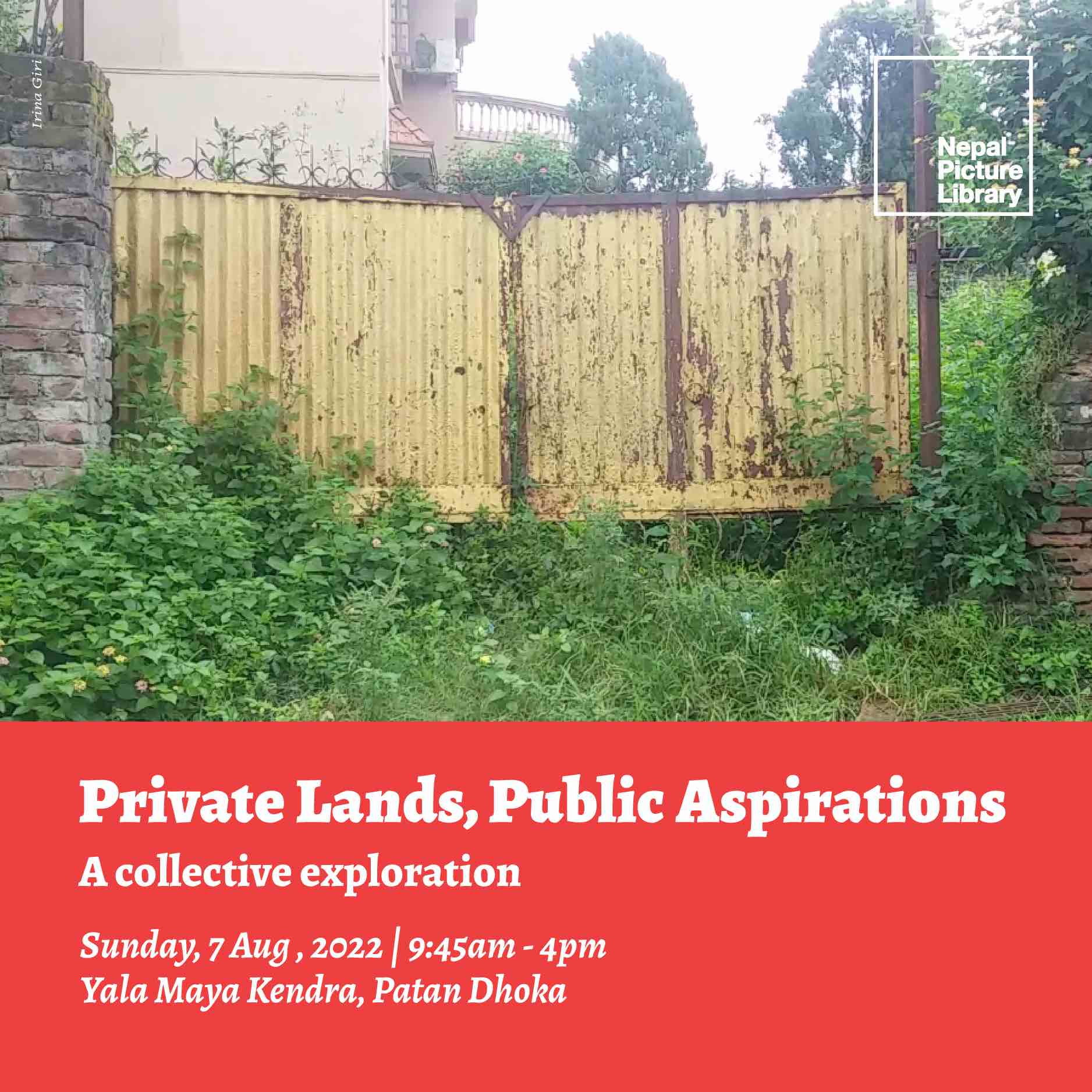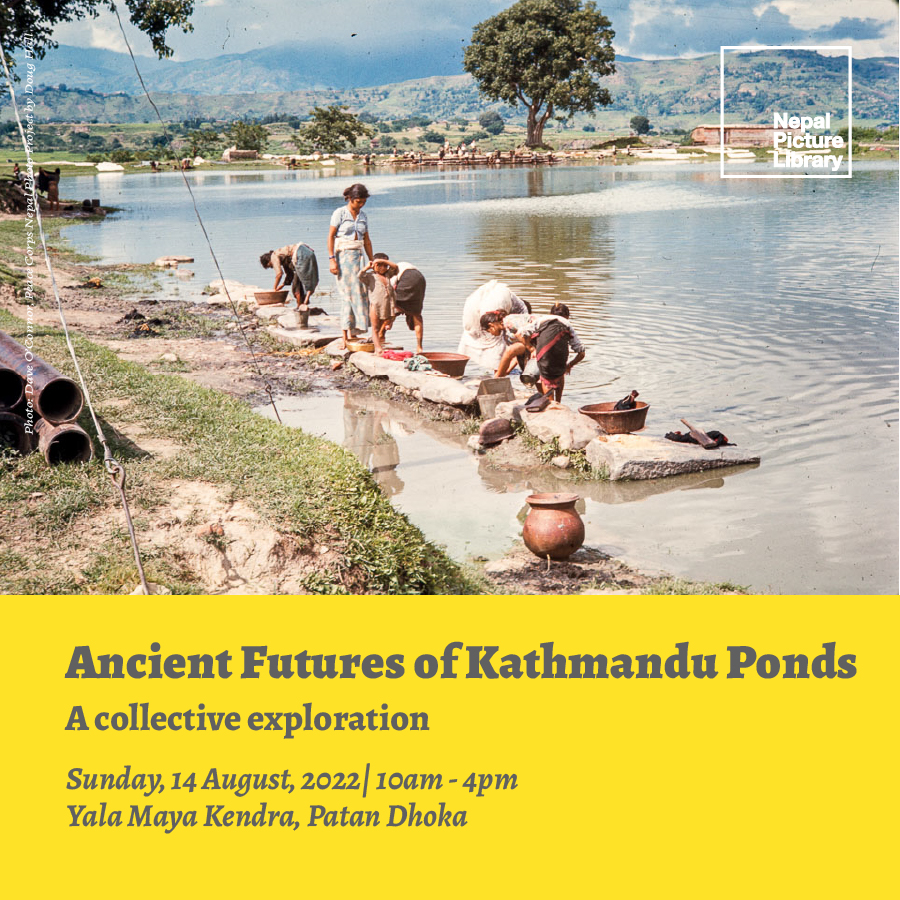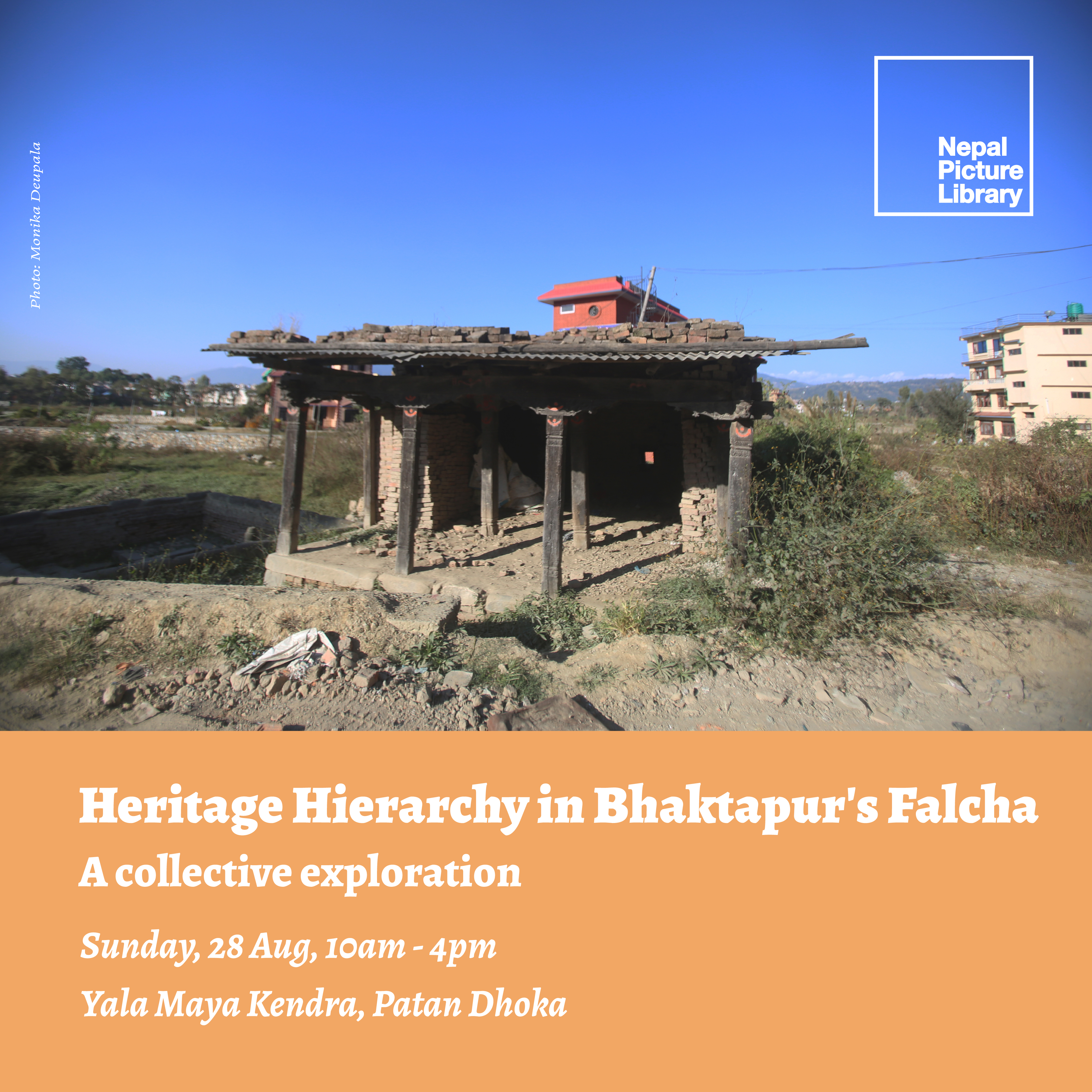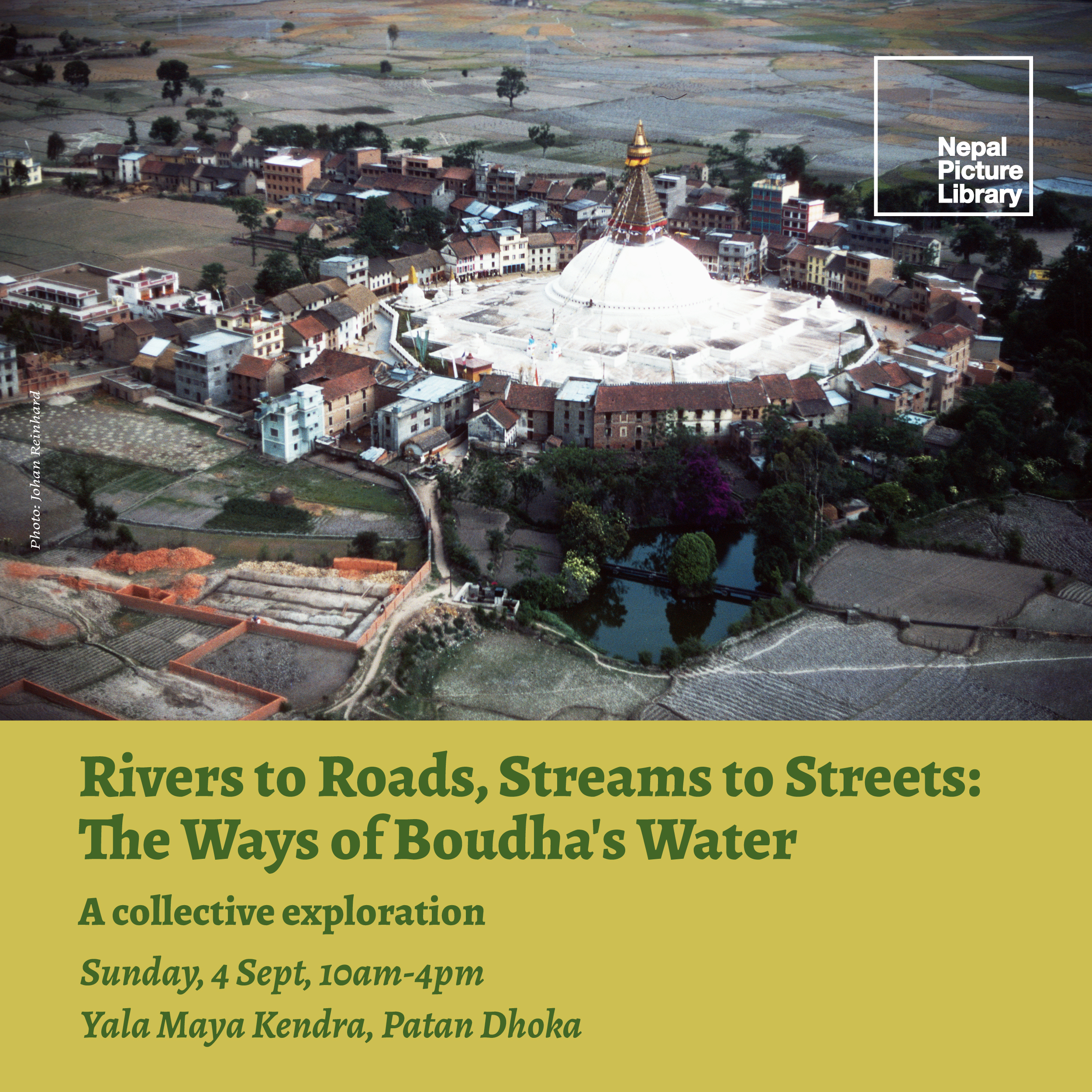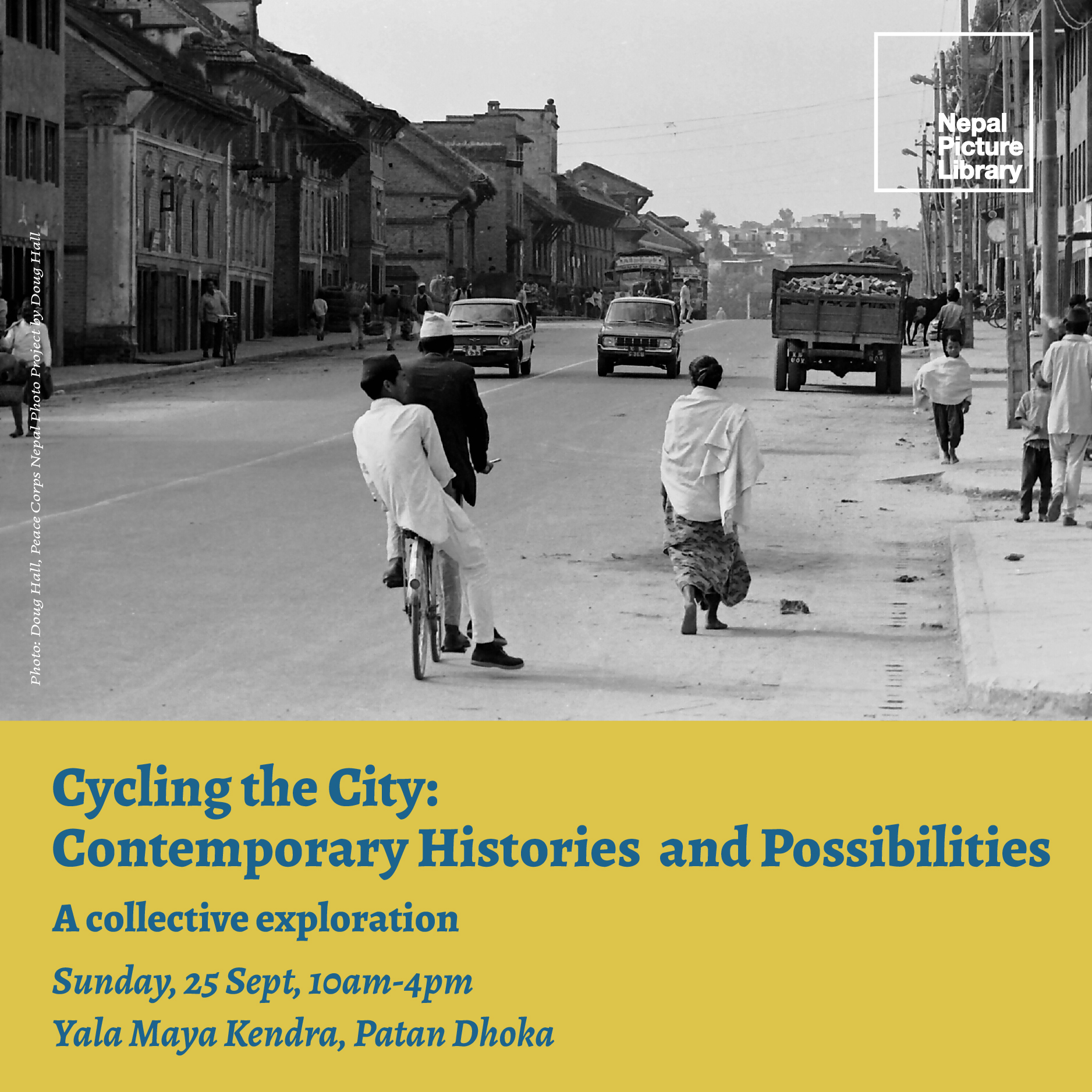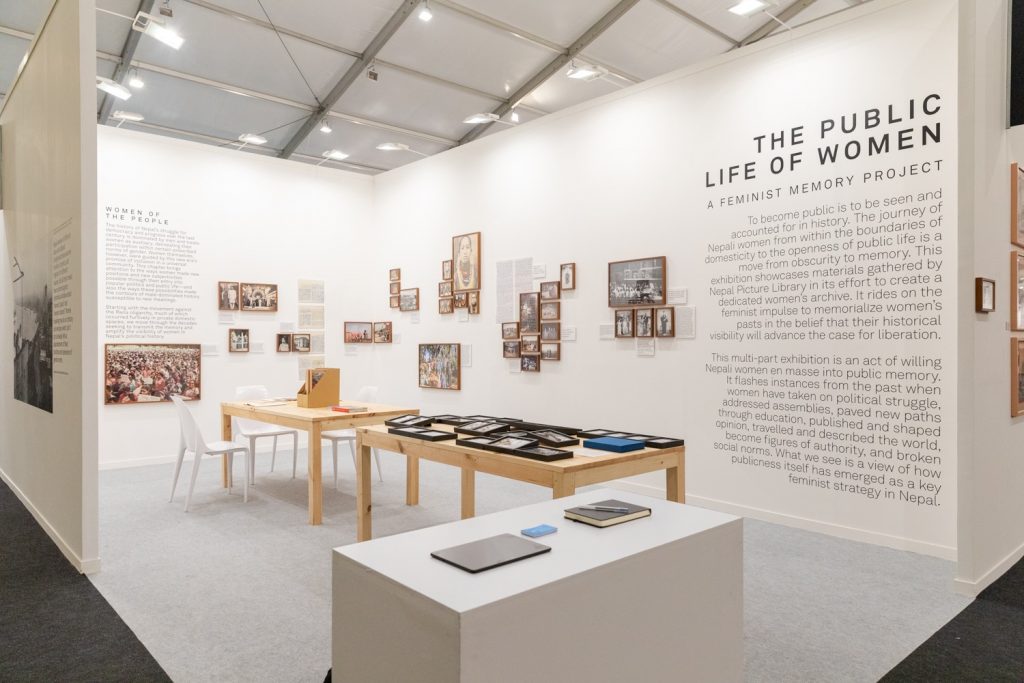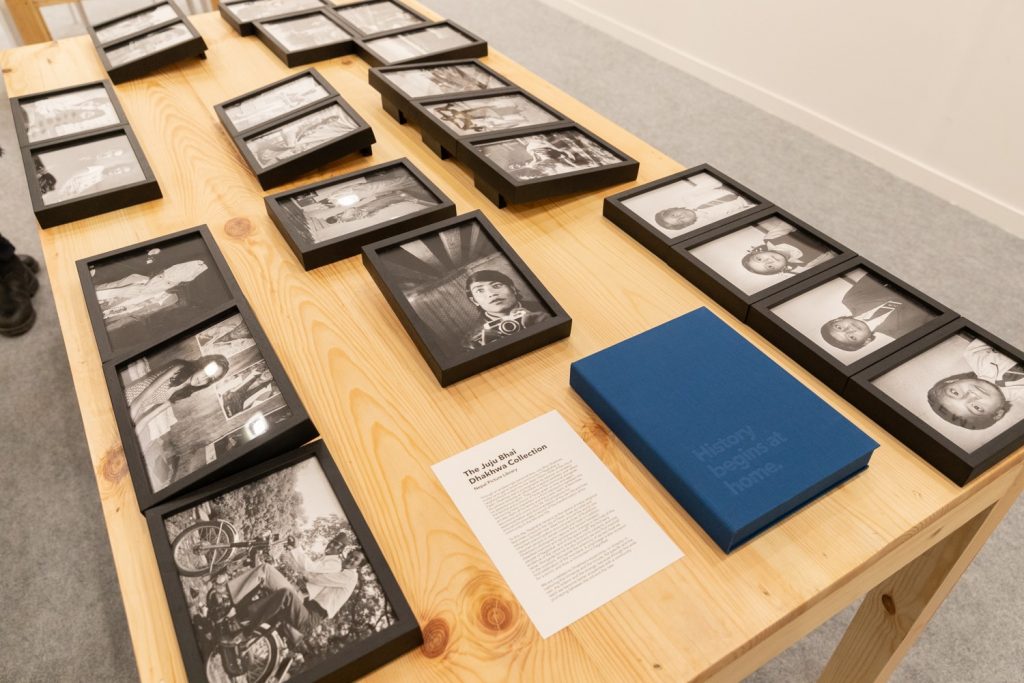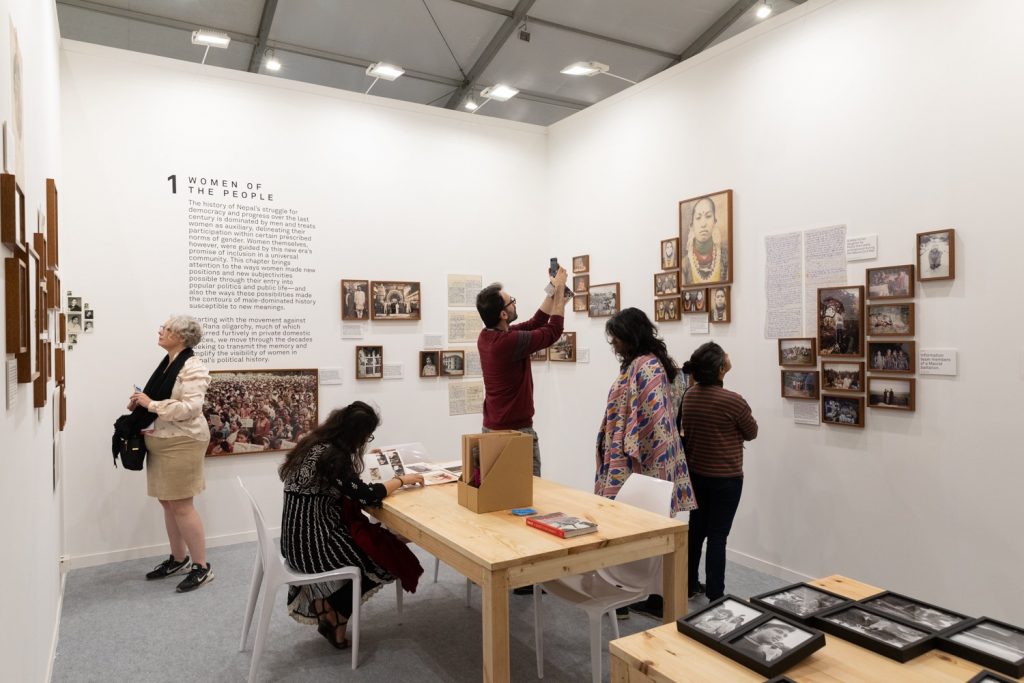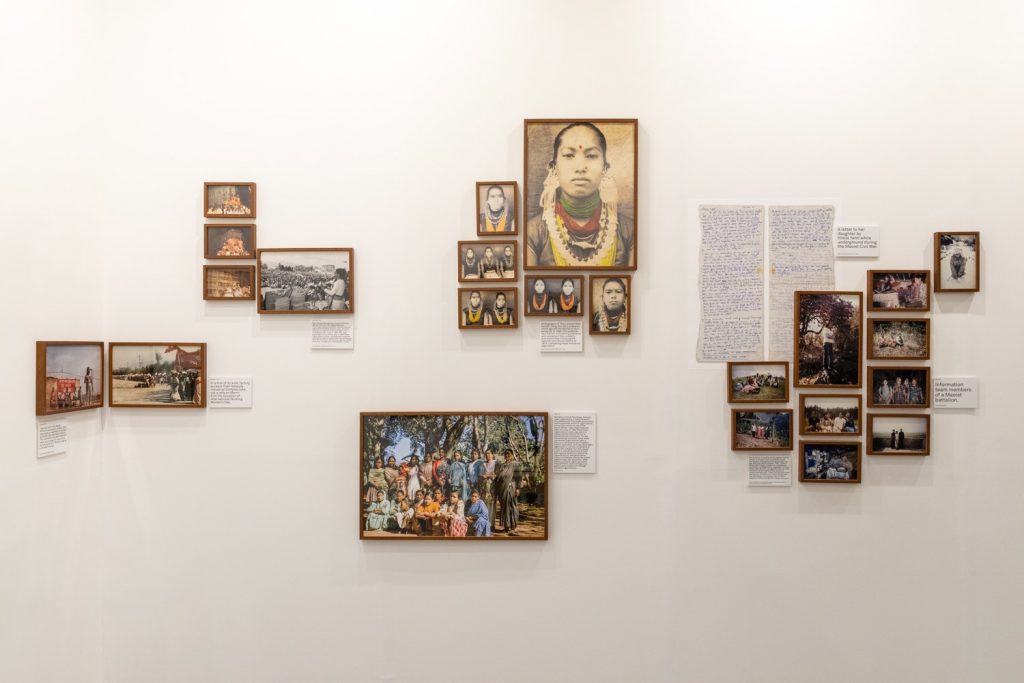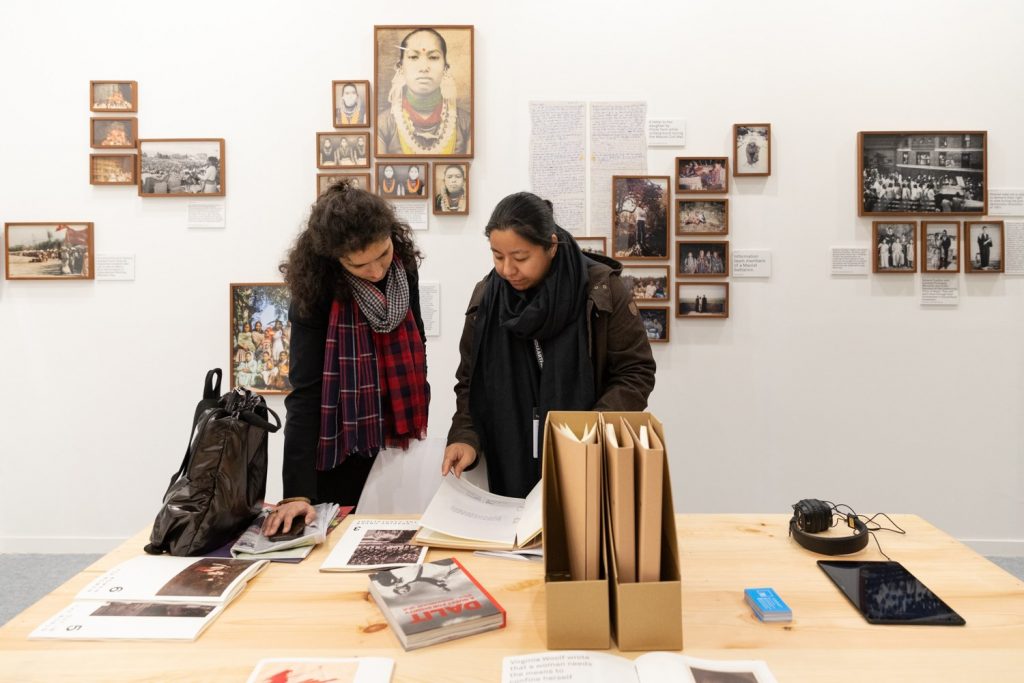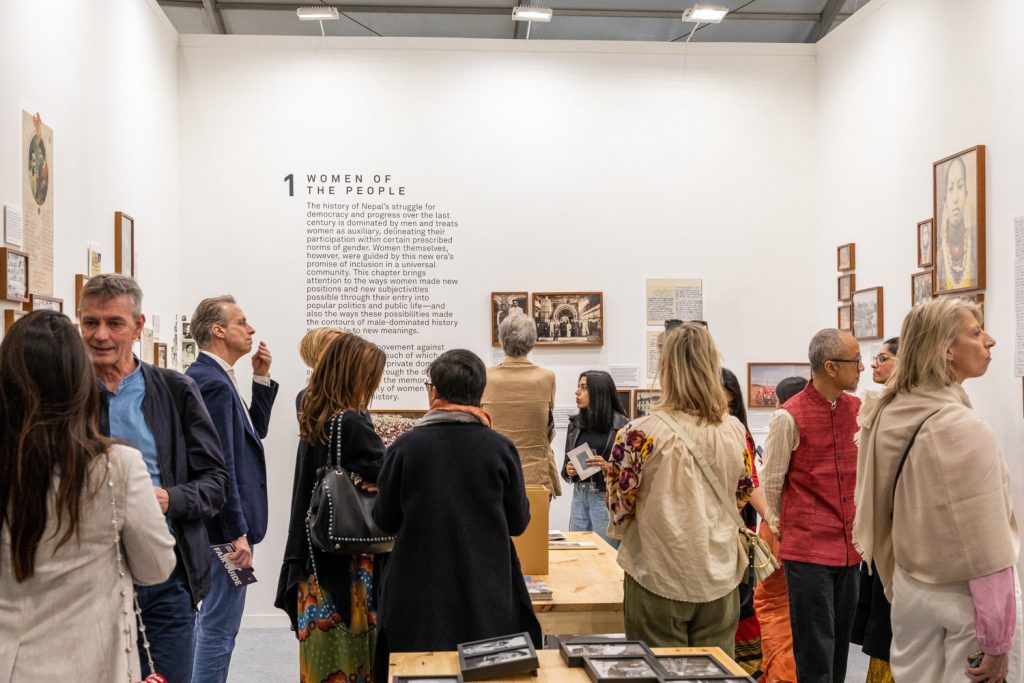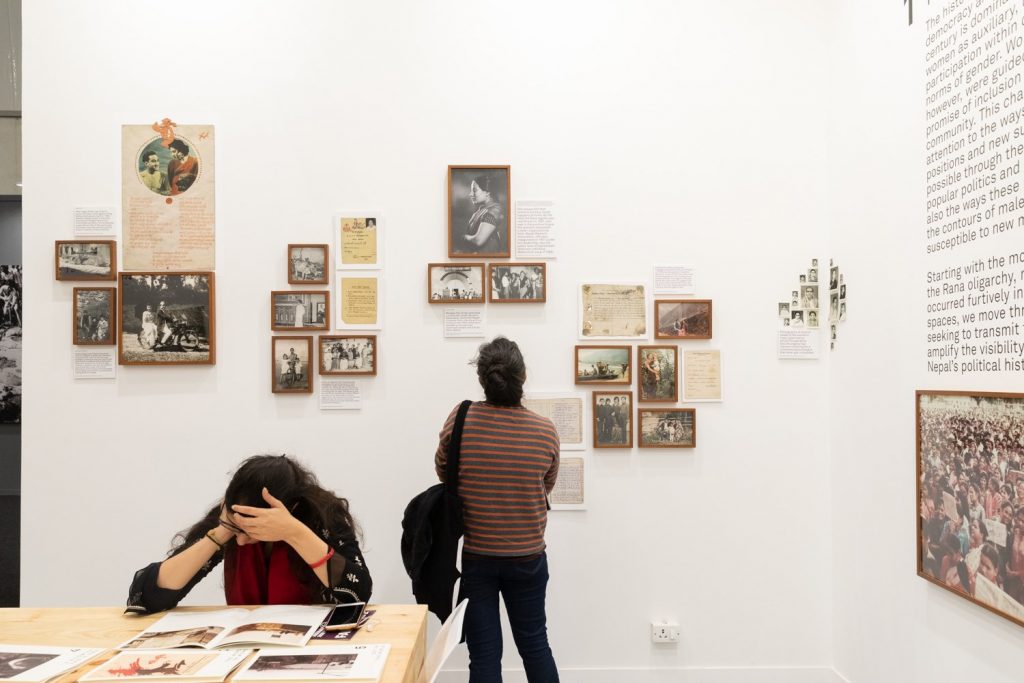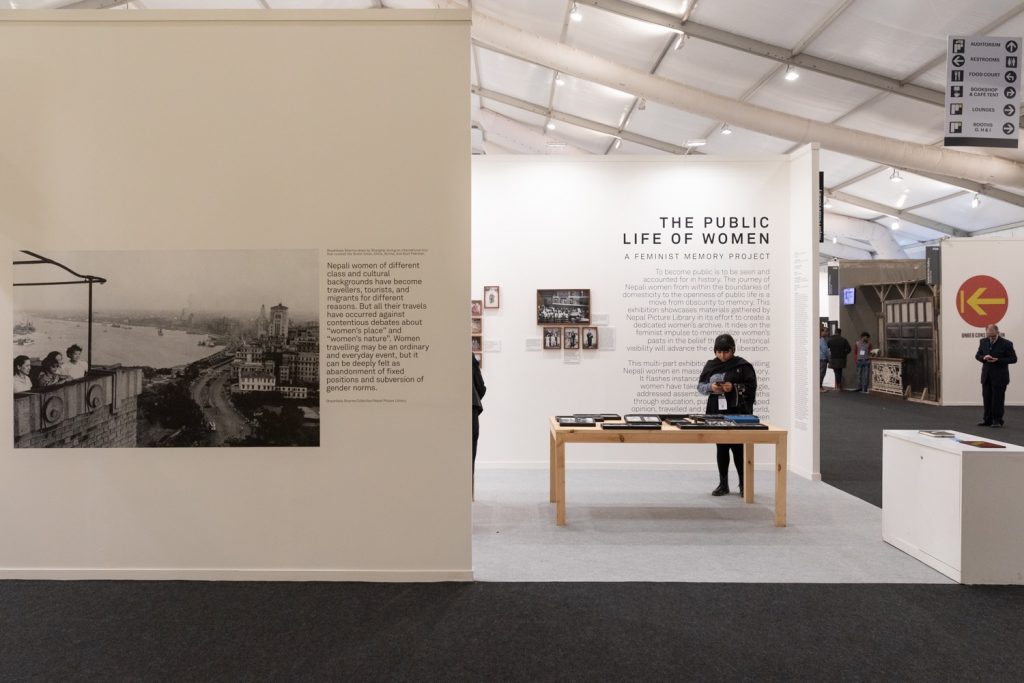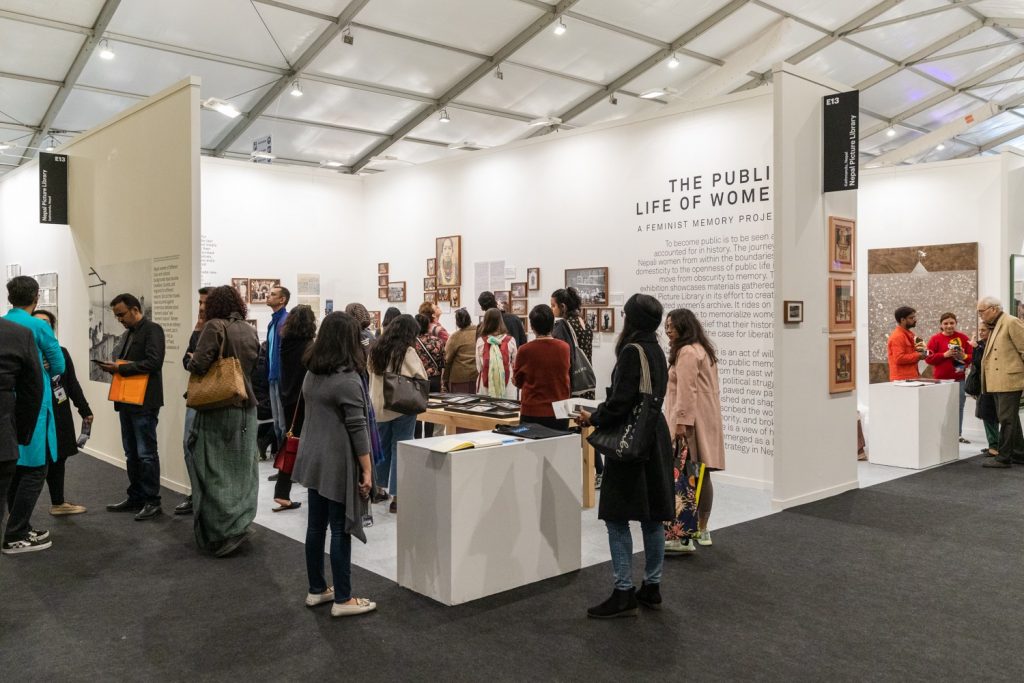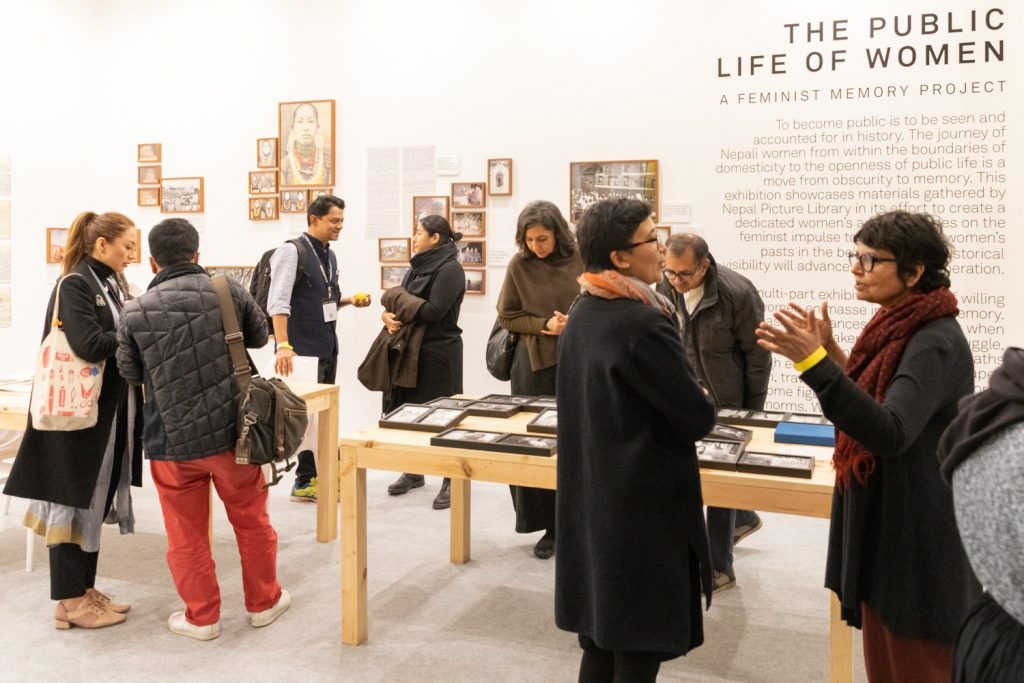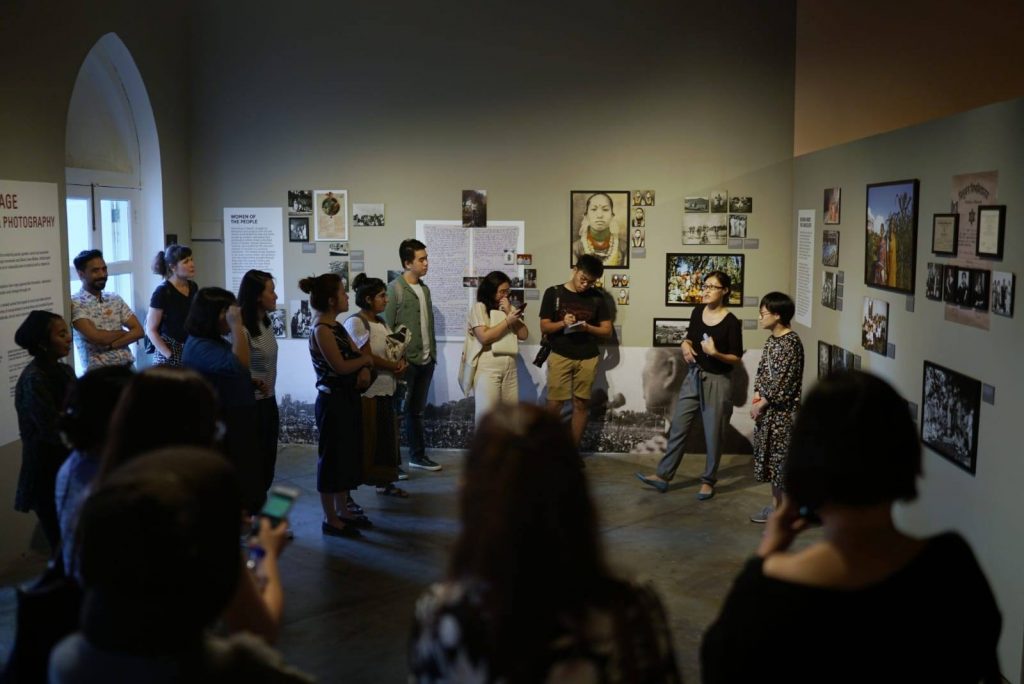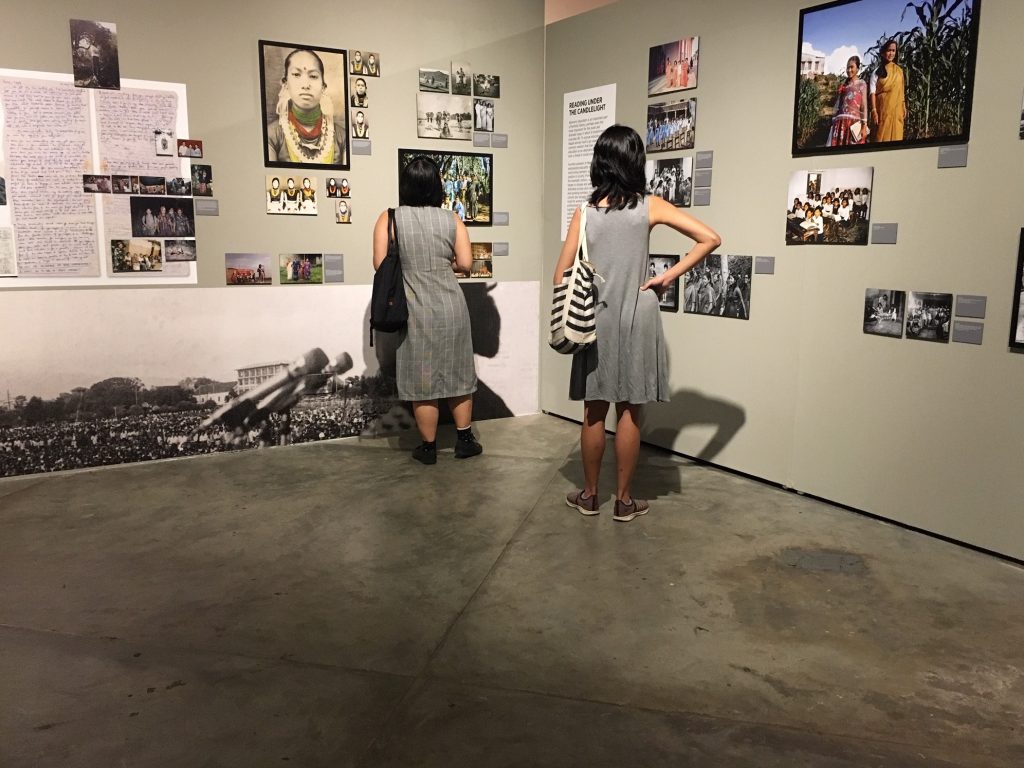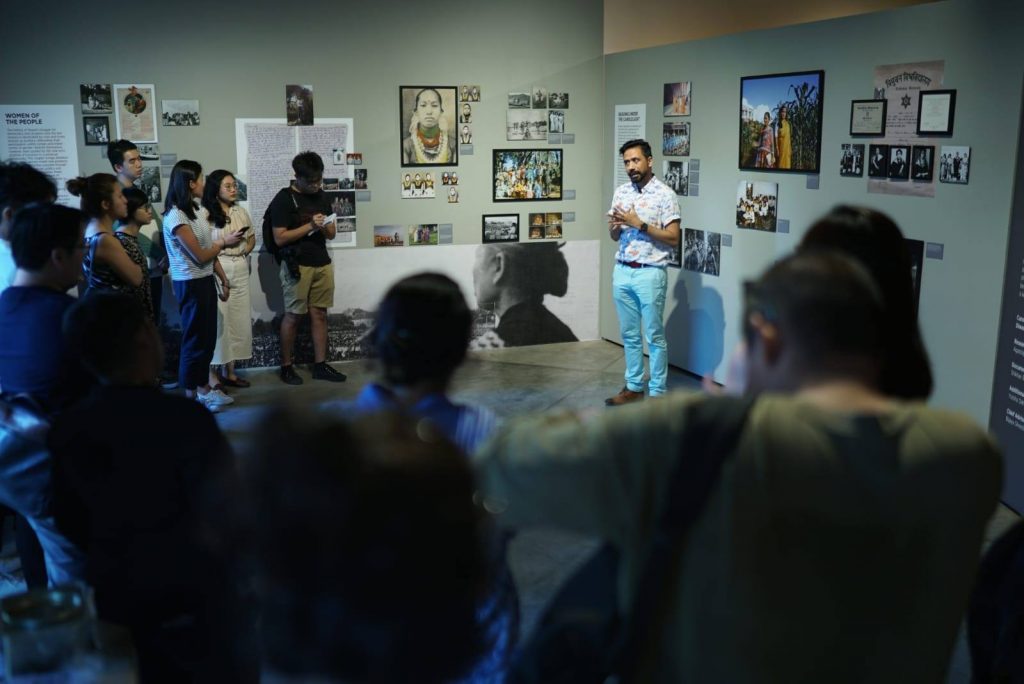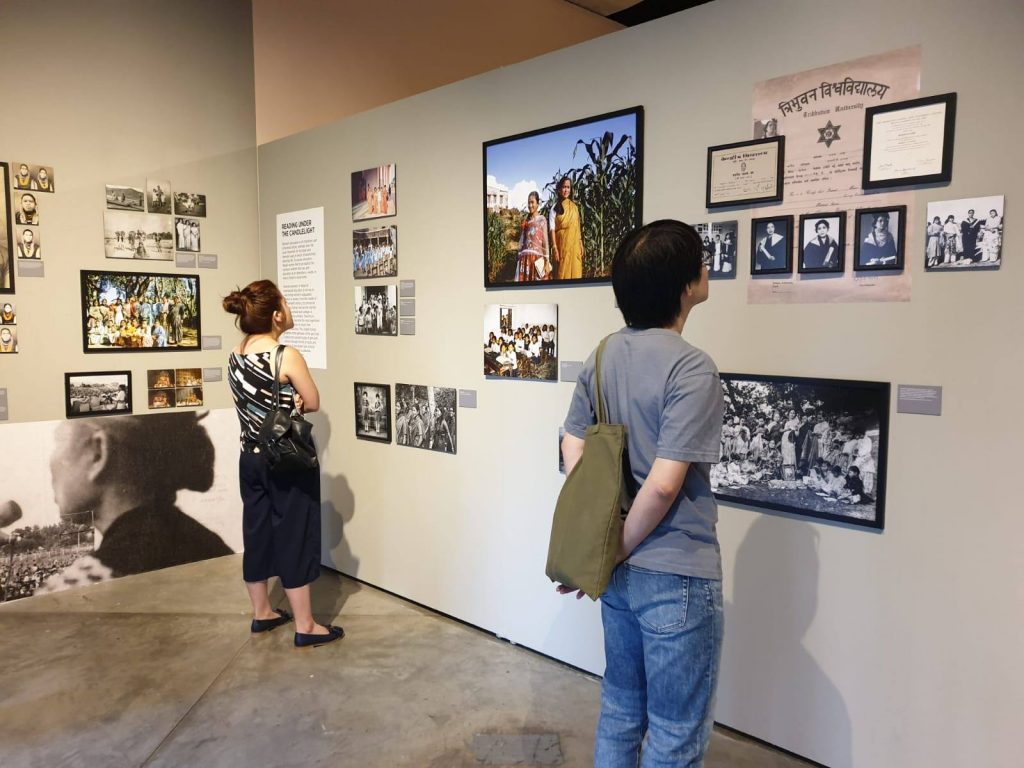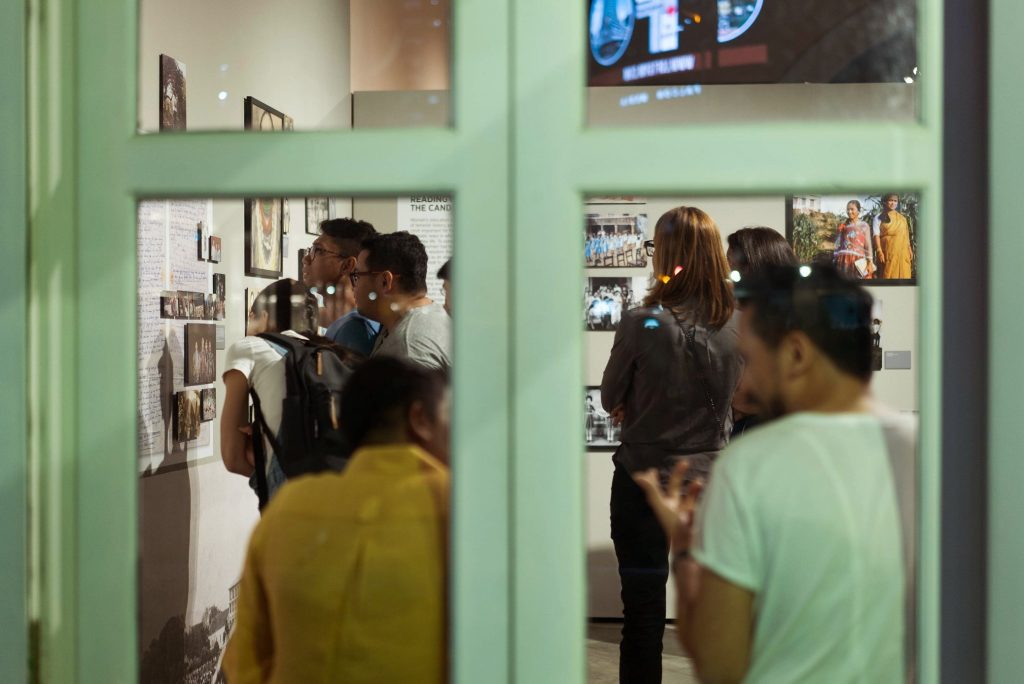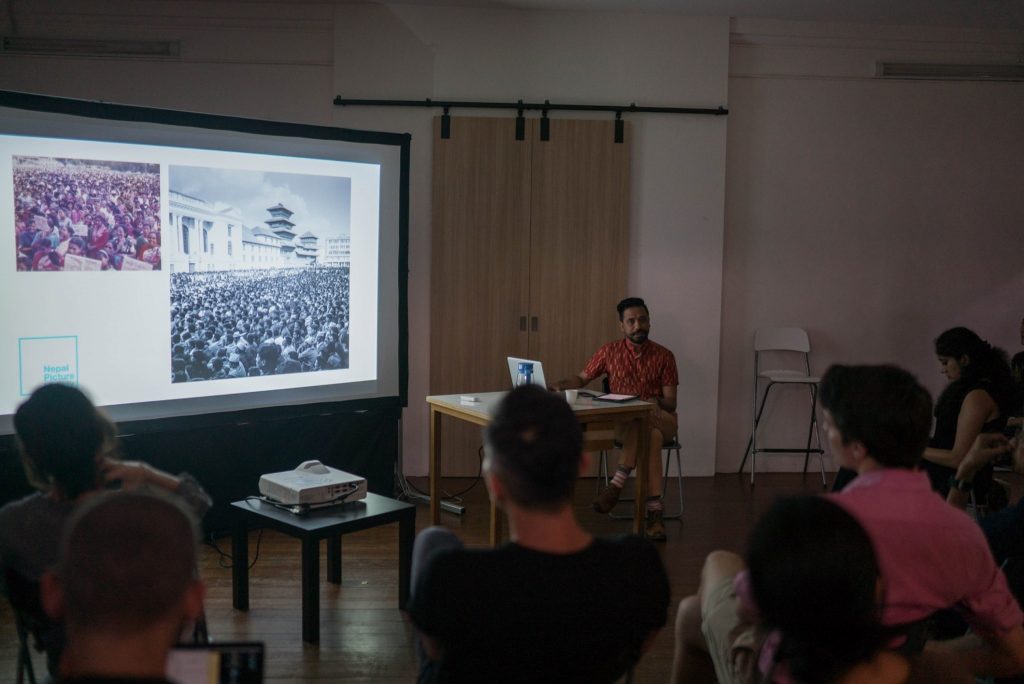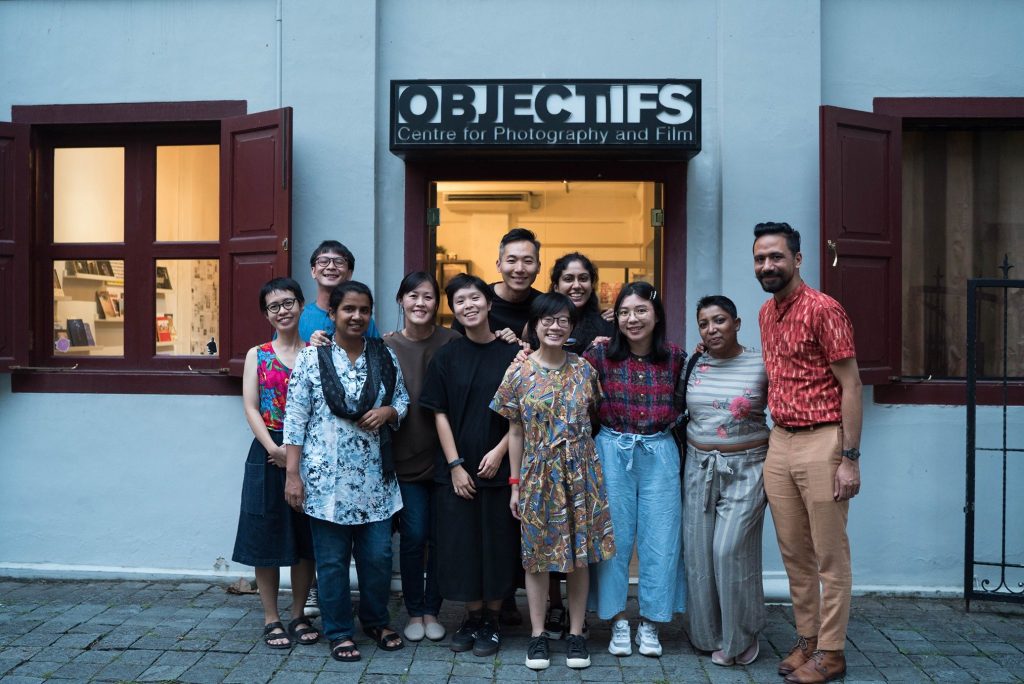Indigenous Pasts, Sustainable Futures is a research project initiated by Nepal Picture Library in 2019, as part of NPL’s ongoing endeavor to document, archive and present Nepal’s marginalized histories. As with our other projects, we are looking for innovative ways to engage with our pasts.
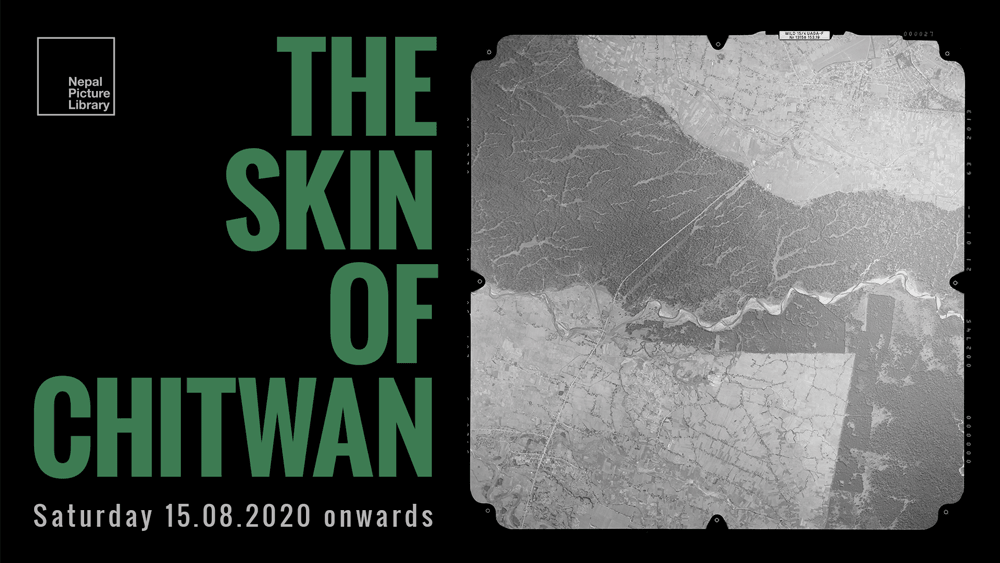
Through research, archive building and storytelling, the project seeks to reimagine conversations around indigeneity, change in climate and ways of life, traditional knowledge systems, ideas of development, progress and sustainability, and indigenous ideas of futurity.
As an outcome of the first phase of research, we are pleased to share this online exhibition titled The Skin of Chitwan, that focuses specifically on Chitwan as an archive of terrestrial change by fixing into images and sounds of the past. The exhibition uncovers new archives; some that have been embedded in memory and personal histories, and others in the land.
The online iteration of the exhibition will platform an open resource section for deeper explorations that NPL hopes to build with collaborators over time. Through August, the online exhibition will be used as a prompt to catalyze a variety of conversations that will attempt to cross-pollinate ideas and unpack themes that the exhibition speaks to, bringing together cultural workers, children’s book writers, researchers, academics, scientists, lawyers, activists and other practitioners.
Project Credits
Exhibition Curator – Diwas Raja Kc
Program Curator – NayanTara Gurung Kakshapati
Research Fellows – Yutsha Dahal and Dewan Rai
Multimedia Fellow – Samagra Shah
Research Consultants – Birendra Mahato, Alston D’Silva, Ashok Tharu, Chhabilal Neupane, Dr. Ulrike Müller-Böker
Asset Management and Design – Shikhar Bhattarai
Additional Support – Biraj Maharjan, Nishant Shilpakar, Tripty Tamang Pakhrin, Sagar Chhetri, Dishebh Raj Shrestha, Thomas Pouppez, Bunu Dhungana and Shristi Shrestha
Acknowledgments – Agriculture and Forestry University, Ajaya Karkee, Amrit Bahadur Chitrakar, Ashish Gopal Pariyar, Bajiram Mahato, Bal Gobinda Chaudhary, Bhawani Tawa, Bidhesni Chowdhary, Bika Chaudhary, Bill Hanson, Bipul Pokhrel, Chandra P Chaudhary, Chizmani Chaudhary, Dave Hohl, Dave Rounds, Dinesh Subedi, Doug Hall, Gene Bank Nepal, Hannah Schneider, Hari Sharan Pathak, Indra Raj Chaudhary, Indu Chaudhary, Janak Rai, Jhoka Chaudhary, Kailash Rai, Kewal Chaudhary, Krishna Hari Ghimire, Krishna Kumar Mishra, Krishni Chowdhary, Lahiya Chowdhary, Lal Bahadur Bote, Lila Kumari Chaudhary, Madhuraj Kerung, Mangani Raut, Mansu Chowdhary, Nirhuri Chaudhary, Ram Din Chaudhary, Richard Pete Andrews, Rukh Gurung, Sabin Nginglekhu, Sanjib Chaudhary, Som Bote, Sukali Raut, Sulochana Gautam, Survey Department of Nepal
The exhibition URL: http://skinofchitwan.nepalpicturelibrary.org/
This project has been made possible through kind support from
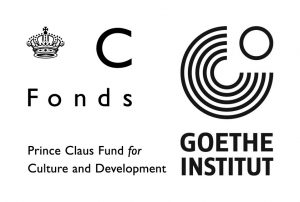
Project presentation by the curators and research fellows followed by discussion:
Saturday, 15th August 2020
4-6pm Nepal Standard Time
Curators Diwas Raja Kc and NayanTara Gurung Kakshapati will speak about the project at large and offer an online “walk-through” of the exhibition and accompanying program.
Research Fellows Yutsha Dahal and Dewan Rai will present their research papers:
Yutsha Dahal is looking at how debates around climate change, conservation and sustainable development are formed through imagined epidermal boundaries; boundaries that separate the tamed civilization from the wilderness of nature, boundaries that demarcate forests and cities, boundaries that alienate us from them. We form not just our understanding but also our identities within these boundaries. What would happen if we freed our current knowledge system from these imagined boundaries and think about the climate change crisis through the understanding of our indigenous pasts? Yutsha explores this question looking at the indigenous tattoo making practice of Tharu women in Nepal.
Dewan Rai is exploring how indigenous communities are disproportionately affected by change, especially change related to infrastructure development, because of their strong ties to the land, and their lack of representation at decision making levels. There have been historical patterns where projects like national parks and wildlife reserves, highway constructions, hydropower projects, forest conservation programs and industries have displaced hundreds of thousands indigenous people and severely altered their way of life. How have these encroachments been accelerated by statesanction? How might progress embrace and respect local visions and aspirations?
UPDATES:
Countering the violence of loss and erasure: building archives for the future
Saturday, 22nd Aug 2020
4-6 pm NST
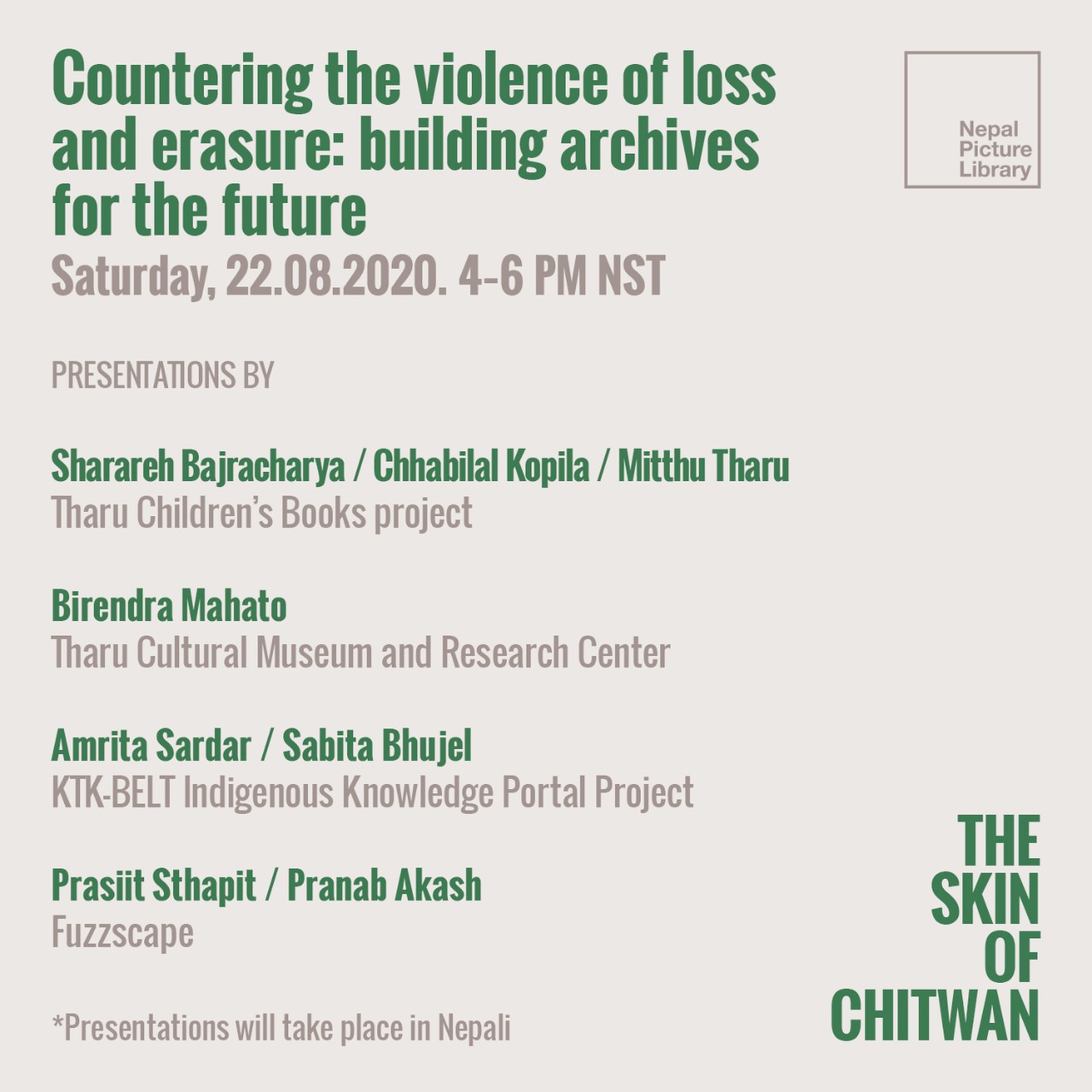
There is much to grieve and rescue of what we have lost. And much to reclaim – our stories, our songs, our histories and indigenous knowledge systems – from the violence of erasure. For this panel we have invited eight independent cultural workers who are doing innovative work towards creating spaces for intergenerational learning and building archives for the future. What has been possible for them and how? What are concerns around appropriation, authorship, access?
1. Sharareh Bajracharya from Srijanalaya, Chhabilal Kopila and Mitthu Tharu will speak about their recent Tharu Children’s books project
2. Birendra Mahato from the Tharu Cultural Museum and Research Center will speak about the process and challenges of museum making work
3. Amrita Sardar and Sabita Bhujel, youth fellows of KTK-BELT will be speaking about Indigenous Knowledge Portal Project in Eastern Nepal
4. Prasiit Sthapit from Fuzz Factory and Pranab Akash will speak about Fuzzscape, a multimedia project aimed at the documentation, archiving and storytelling of intangible cultural heritage and their recent collaboration
*Presentations will take place in Nepali
Please register in advance for this meeting:
https://zoom.us/…/regi…/tJUocu2qqTwiHNKNKe6mqfqM4vCIuoHilyst
After registering, you will receive a confirmation email containing information about joining the meeting.
Gut microbiome: using genetics to understand Indigenous Nepali histories and change
Wednesday, 26th Aug 2020
7-8:30 pm NST
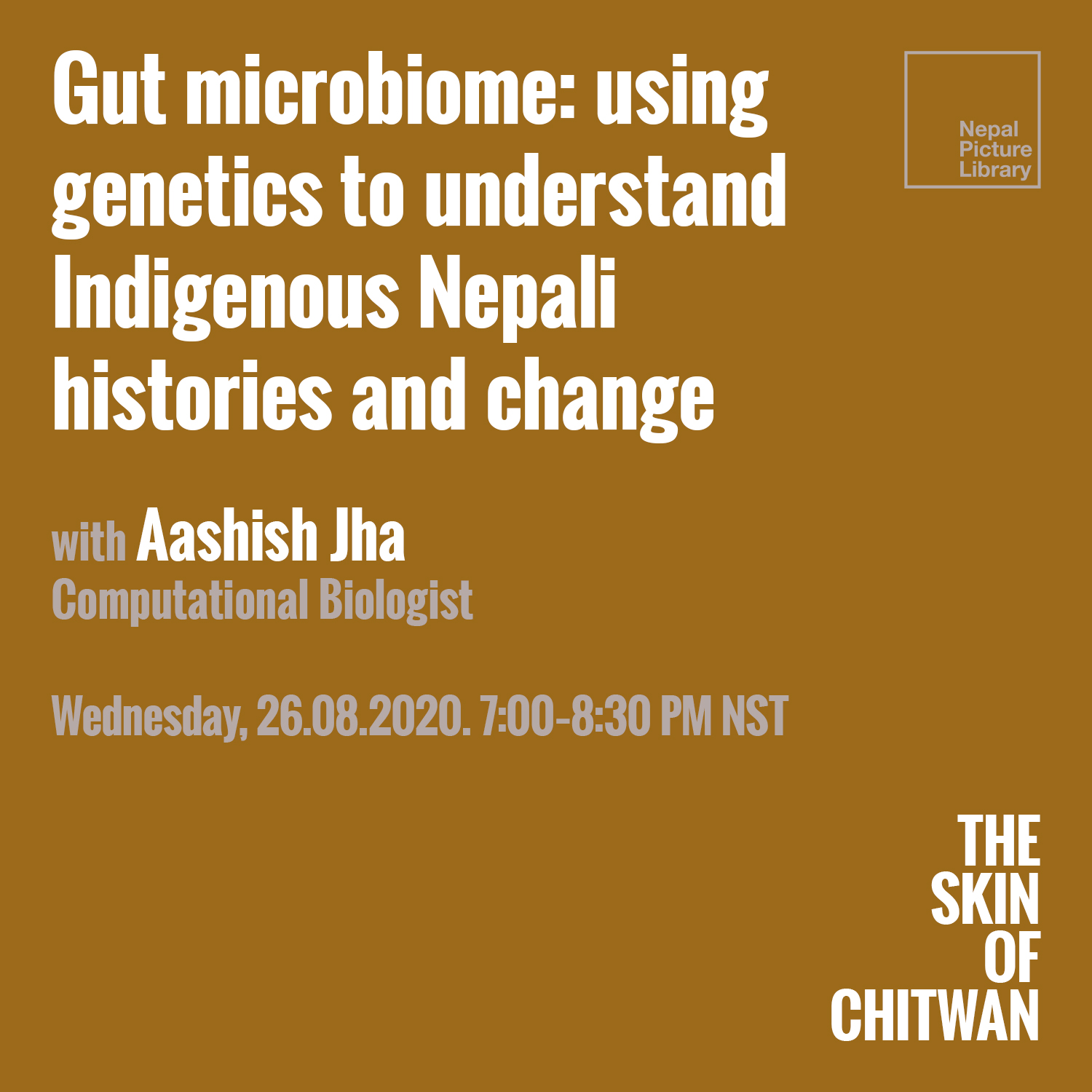
Aashish Jha, PhD is an incoming Assistant Professor in the Department of Biology at New York University Abu Dhabi. He uses genomics to decipher human population histories and microbiomes. Some of his recent work looks at the human gut (intestine), which contains a diverse community of bacteria. This bacterial community changes rapidly in response to diet and environment.
Many indigenous communities across Nepal who have historically foraged for food in the forests or grown their own food —are undergoing rapid lifestyle changes, including the Tharu, Raute, Raji and Chepang communities. Aashish has characterized the gut microbiota of these four communities, to investigate whether shifts from traditional lifestyles have resulted in changes in their gut bacteria. The results of his studies demonstrate that changes in their gut microbiome strongly reflect their divergence from their traditional foraging lifestyles. Many of the bacteria that differ across lifestyles are diet dependent but they also demonstrated that environmental factors, such as sources of drinking water, are strongly associated with the gut microbiome in Nepali populations.
How is large-scale gut microbiome reconfiguration impacting the health of the indigenous populations? What kind of scientific evidence and archival records make indigenous claims about the past possible? What do we accept to be evidence and what do we not? What is the role of other forms of knowledge that fall outside the western scientific framework?
Aashish Jha (@nepaliaashish) is an Assistant Professor at New York University Abu Dhabi where he uses genomics to decipher human population histories and microbiomes. His recent work has focused on traditional Himalayan populations and his current research projects include genomics and microbiomics of Nepal, India, Africa, and Oceania.
Aashish received his BA in Molecular and Cellular Biology from University of California Berkeley and his Ph.D. in Human Genetics from The University of Chicago. During his postdoctoral scholarship at Stanford University, he started The Himalayan Diversity Project to study the genetics and microbiome of Himalayan populations. His work in the Himalaya is supported by grants from The Bill and Melinda Gates Foundation and Stanford University Center for Computational, Evolutionary, and Human Genomics (CEHG). Aashish has published two dozen peer-reviewed papers in scientific journals. A complete list of his scientific publications can be found at Google Scholar.
Please register in advance for this meeting:
https://zoom.us/meeting/register/tJwrdOqqrTssHdawBZ2lCUpkrPeWylRtbYZs
After registering, you will receive a confirmation email containing information about joining the meeting.
The Anthropocene, Indigeneity and the Planetary Imagination
Sunday, 30th Aug 2020
7 – 9 pm NST
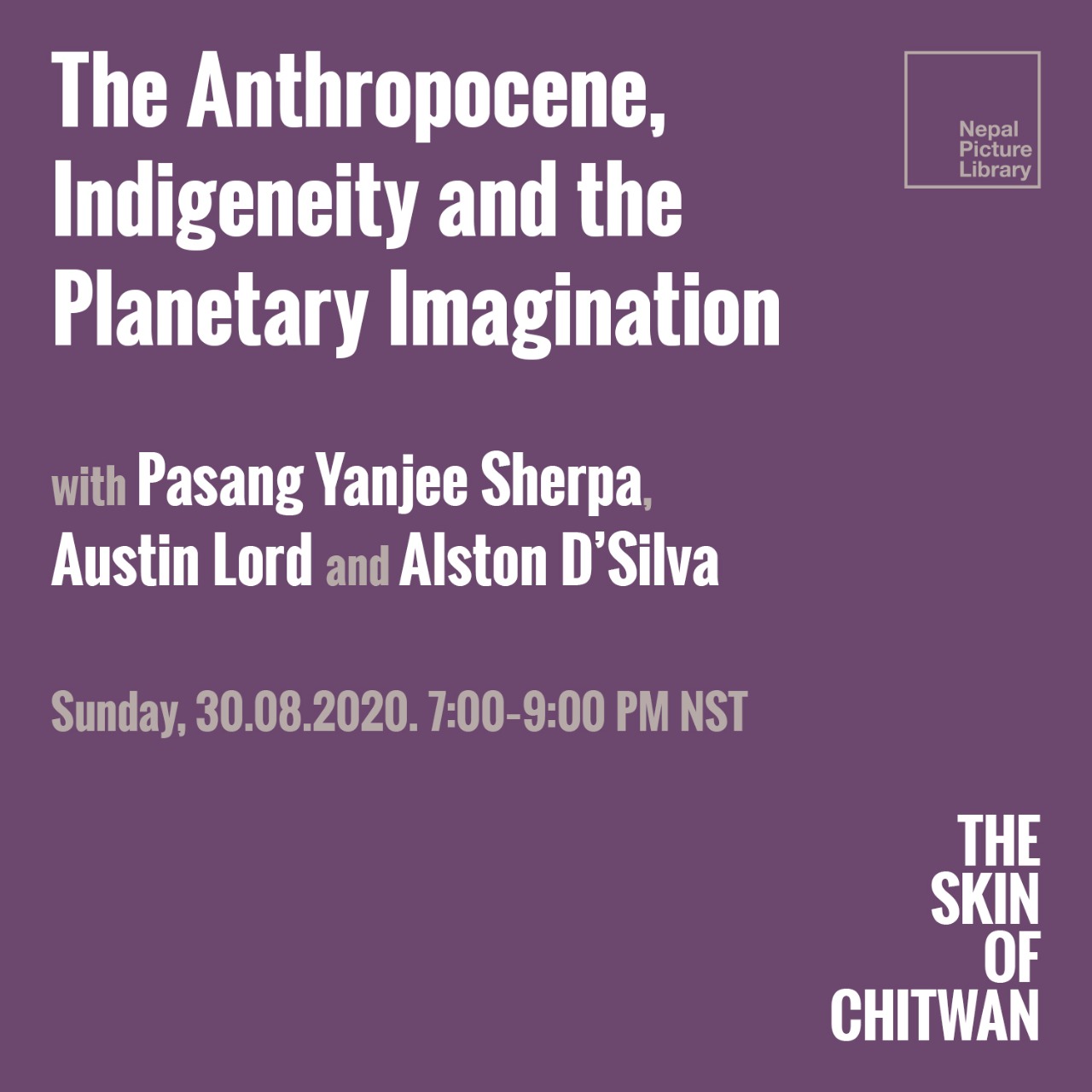
Why should scholars engage with the anthropocene? Is the anthropocene an invitation to think and act more globally and collaboratively? Or is it license to accelerate the hyper-modern projects that already threaten to suffocate and unhome indigenous communities? Reflecting on the on-going ‘The Skin of Chitwan’ exhibition and their own research, Nepal scholars Pasang Yanjee Sherpa, Austin Lord and Alston D’Silva discuss how the category of indigeneity as an increasingly vital line of analysis of planetary crises complicates and informs questions of agency, climate change, and political imagination.
Please register in advance for this meeting:
https://zoom.us/meeting/register/tJ0sfuqhqj8oH90M89DrTiryjHtt9u4YQoBe
Pasang Yangjee Sherpa, Ph.D. is an anthropologist currently based in Seattle, U.S.A. Her research areas include the Sherpa diaspora, climate change and Indigeneity in Nepal and the Himalayas. She has taught at the New School in New York, Pacific Lutheran University, Penn State University, Washington State University and University of Washington. Her interviews have appeared in Alpinist, Al Jazeera, BBC, Foreign Policy, PRI’s The World, Newsweek, and BYU Radio’s Top of the Mind. For more: www.pasangysherpa.com
Austin Lord is an anthropologist whose research focuses on questions of disaster and aftermath, time and temporality, water and energy, and the ways people reckon with uncertainty and socio-ecological change. His PhD dissertation research focuses on the ways that the people of the Langtang Valley are rebuilding their lives in the wake of the 2015 earthquake and reorienting themselves in relation to unevenly imagined futures. His scholarship has been published in a variety of academic journals, including Economic Anthropology, Cultural Anthropology, Political Geography, WIREs Water, Modern Asian Studies, Environment and Planning D, Himalaya, and Limn. Austin is also a photographer, filmmaker, and curator – in 2018 he co-curated an exhibition for Photo Kathmandu that drew from the ongoing work of a collaborative archival initiative called the Langtang Memory Project. He holds a Masters in Environmental Science from Yale University, and he is currently a PhD Candidate in the Department of Anthropology at Cornell University.
Alston Angelo D’Silva is a researcher, critic and educator. His ongoing research on the social dimensions of science and technology, human and machinic exploration of outer space, and new media activism have been presented in such diverse forums as the American Studies Association Conference, the European Network for Cinema and Media Studies Conference, the Extending Play Conference at Rutgers University, the Humanities and Social Sciences Seminar Series at the Indian Institute of Science Education & Research, Mohali, India. He has engaged in cutting edge interdisciplinary humanities research through his collaborations at UC Santa Barbara including with the Graduate Center for Literary Research, The New Sexualities Research Group and the Media Fields Editorial Collective, where he was the co-editor for the issue “Spaces of Protest”.
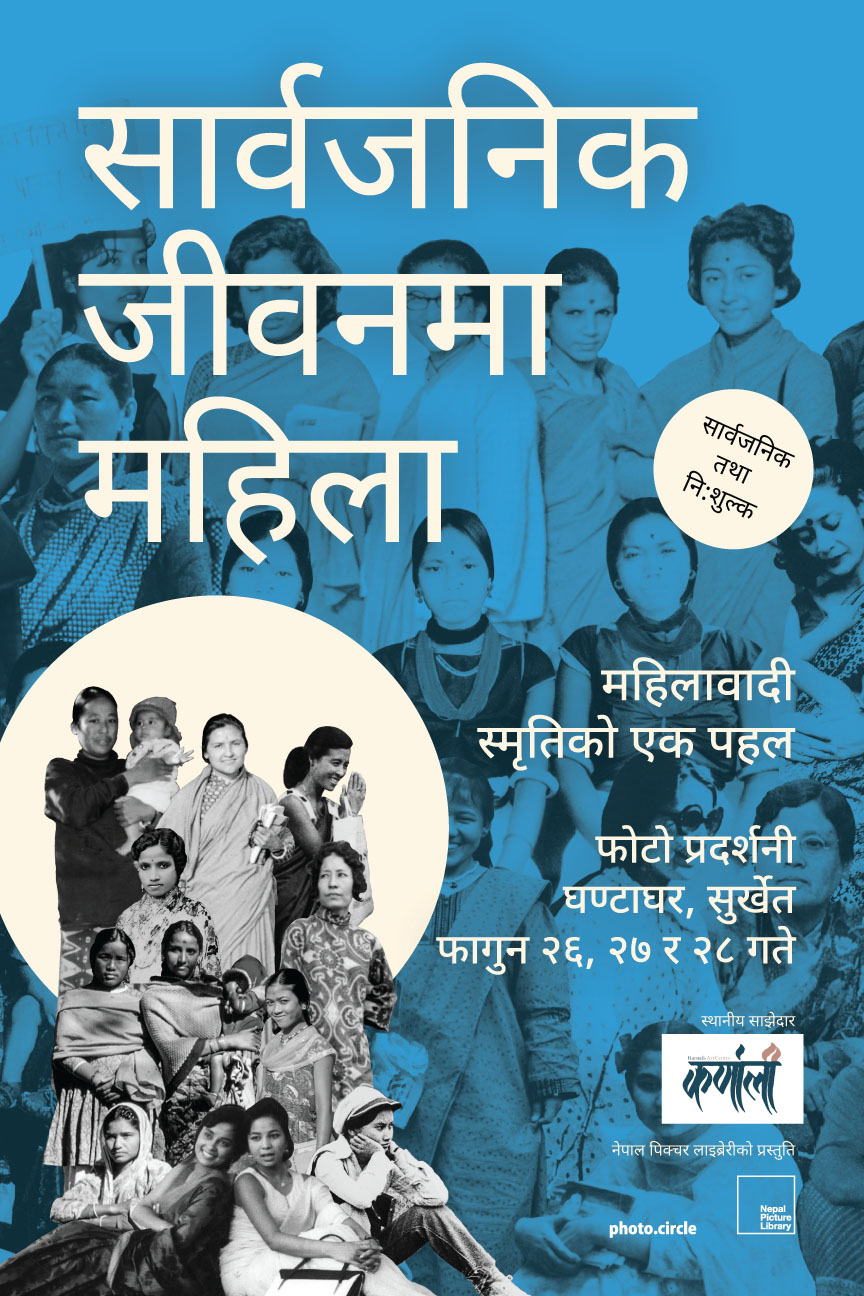
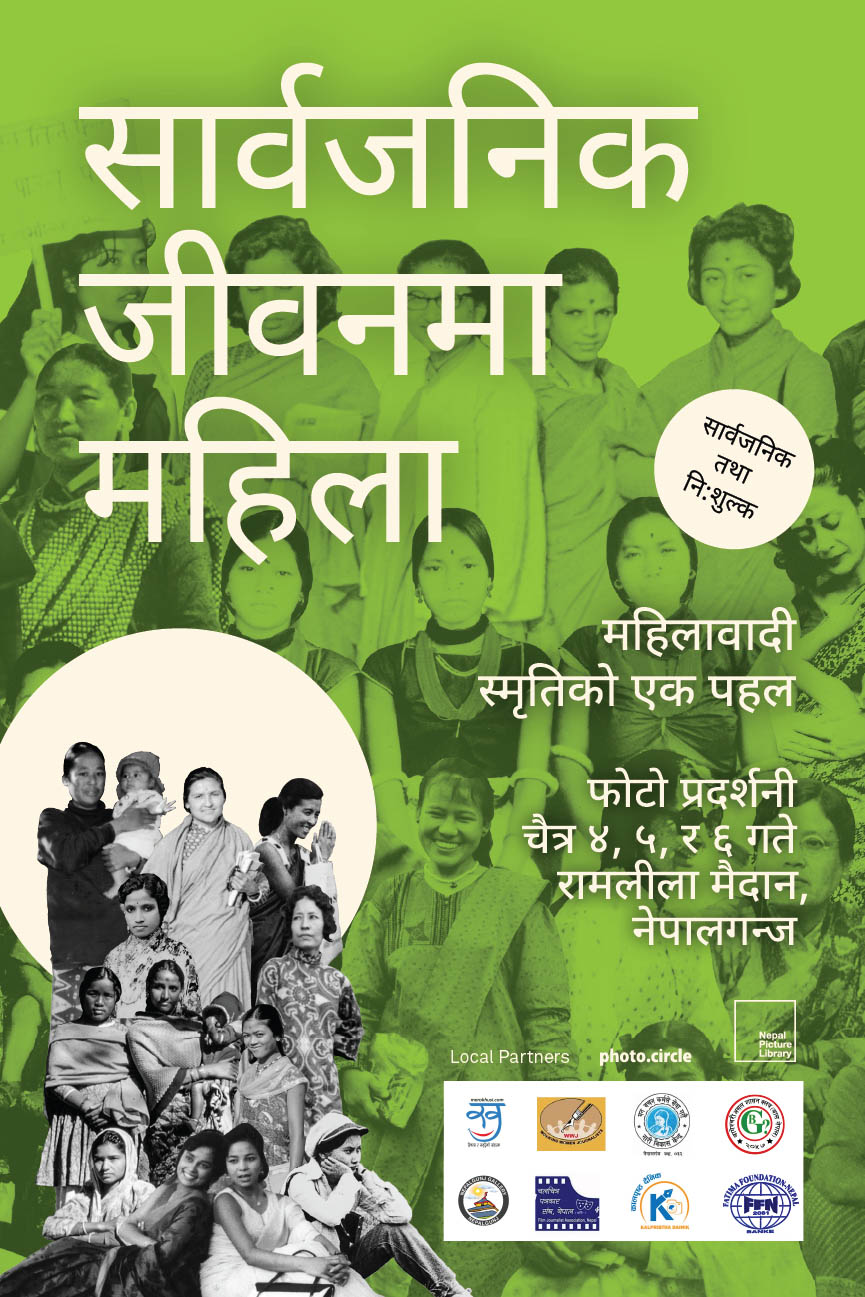
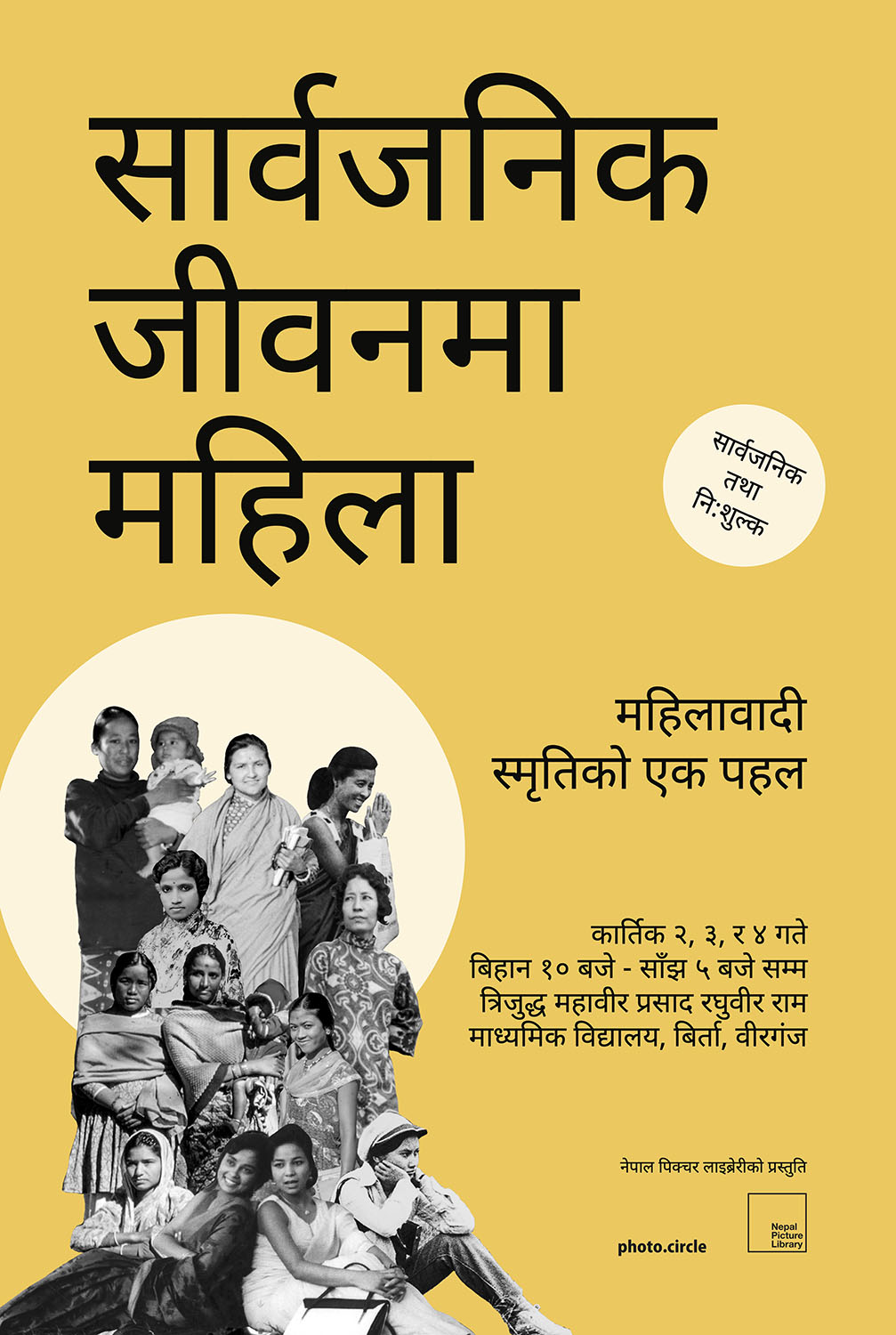
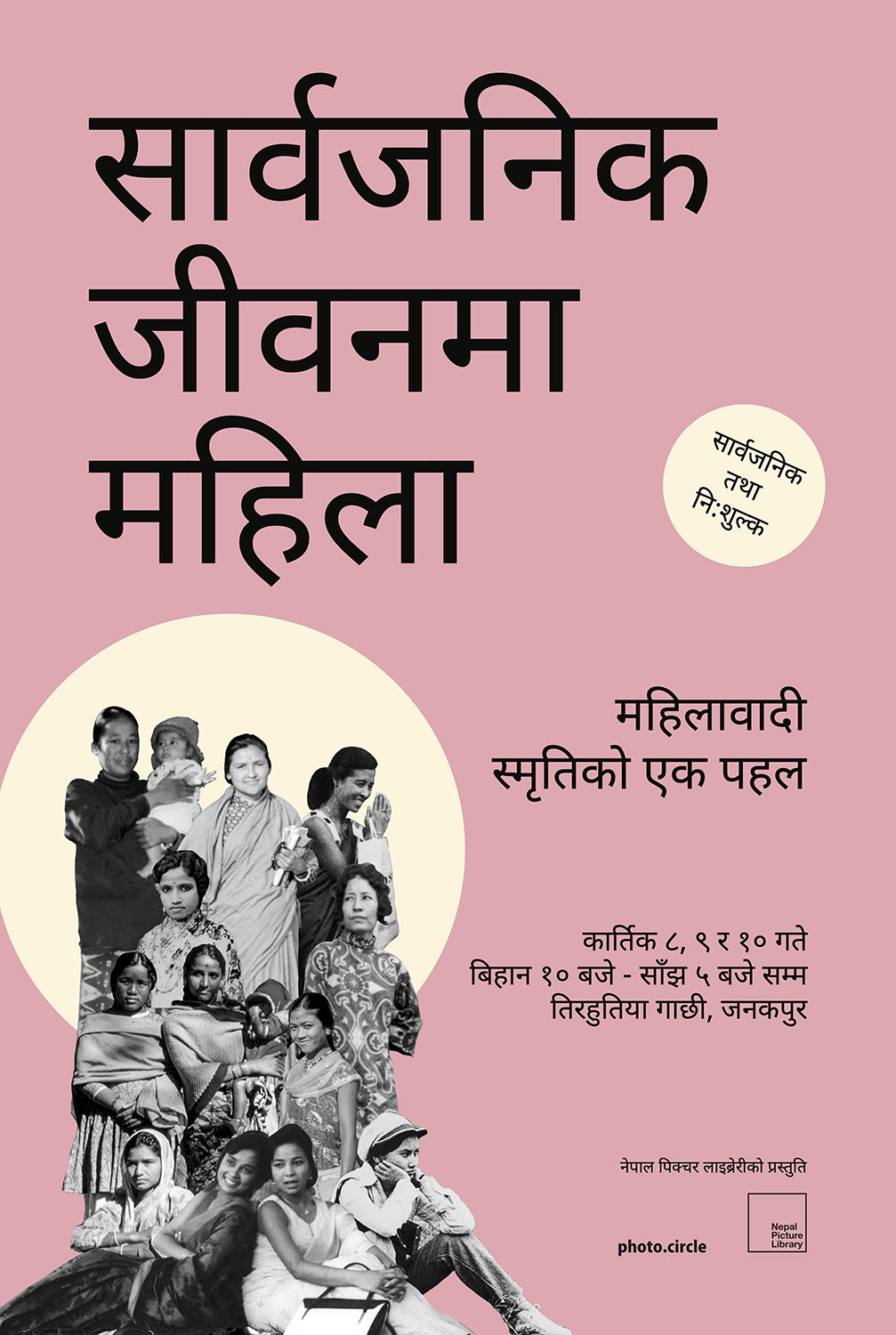
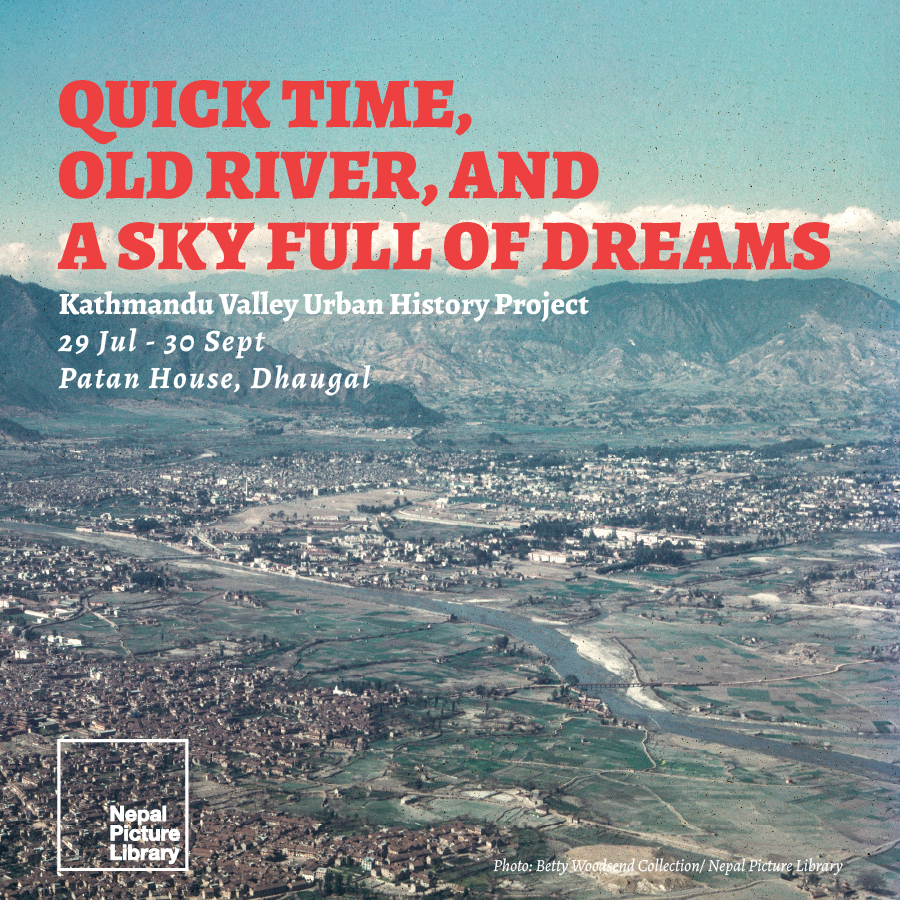
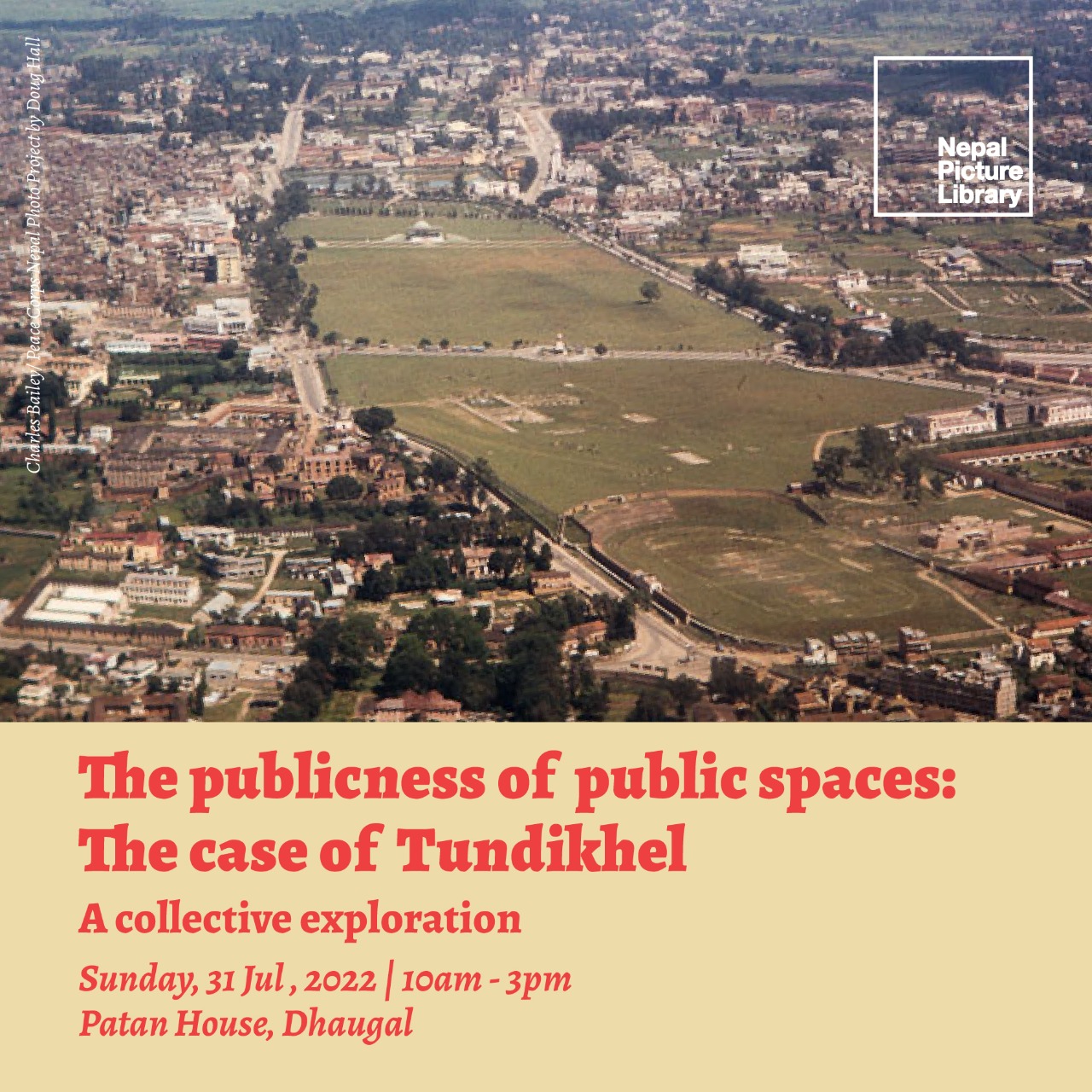 The Publicness of public spaces: The case of Tundikhel
The Publicness of public spaces: The case of Tundikhel